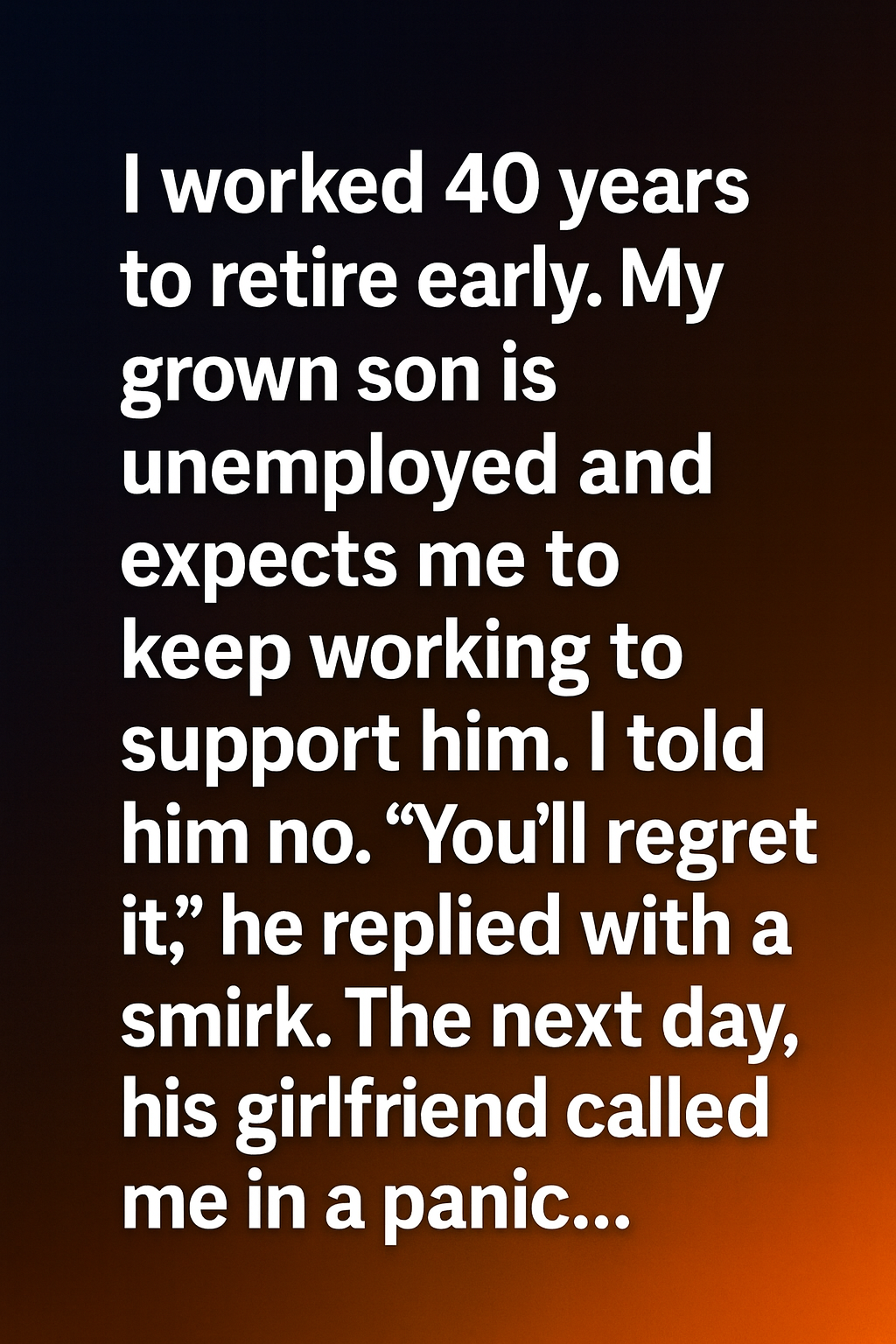Teaching My Son Responsibility After Retirement
For forty years, I poured my energy into work. Every paycheck, every long shift, every sacrifice carried one goal in mind: the dream of retirement.
When that long-awaited day finally came, it felt like stepping into sunlight after decades in the shadows. I imagined mornings in my garden, afternoons filled with laughter from my grandchildren, and maybe even trips to places I’d only admired in magazines.
No more time clocks. No more dawn alarms. Just peace.
But just as I was settling into this new chapter, life handed me an unexpected twist—one that tested not only my patience but also my role as a father.
My adult son had been struggling to find steady work. Instead of pushing himself toward opportunities, he began leaning heavily on me for financial help. At first, I thought it was temporary, just a rough patch. But then one evening, he looked at me without hesitation and said:
“You’ll have to keep working so you can help me.”
The words struck me like a blow. After decades of labor, I had finally reached the finish line, only to be told I should keep running.
I steadied my voice and told him, “I’ve spent my life working to reach this point. I can’t keep carrying you. It’s your turn now.”
He didn’t take it well. With a mocking grin, he muttered, “You’ll regret this.”
The sting of his words cut deep, but in my heart, I knew holding firm was necessary.

The very next day, his girlfriend called. Her voice trembled with worry as she explained that his outburst wasn’t born of anger, but of fear. He was overwhelmed—afraid of failure, uncertain about the future, unsure if he could stand on his own two feet.
That conversation shifted my perspective. His defiance wasn’t entitlement. It was desperation.
I went to see him. We sat together for hours, the silence between us slowly melting into honesty. I told him that while I couldn’t endlessly fund his life, I would never stop supporting him with guidance, encouragement, and love.
Together, we built a plan. He would start submitting applications, explore training programs, and take consistent steps toward independence. It wouldn’t be easy—but for the first time, he seemed willing to try.
Through this, I learned something profound: sometimes saying “no” is an act of the deepest love.
It forces the people we care about to discover their own strength.
My son realized that independence doesn’t mean walking alone. It means finding the courage to move forward, knowing those who love you are there—cheering from the sidelines.
And as for me, I discovered that retirement isn’t just about peace and leisure. It’s also about passing down lessons, even the hard ones, and watching the next generation rise on their own.